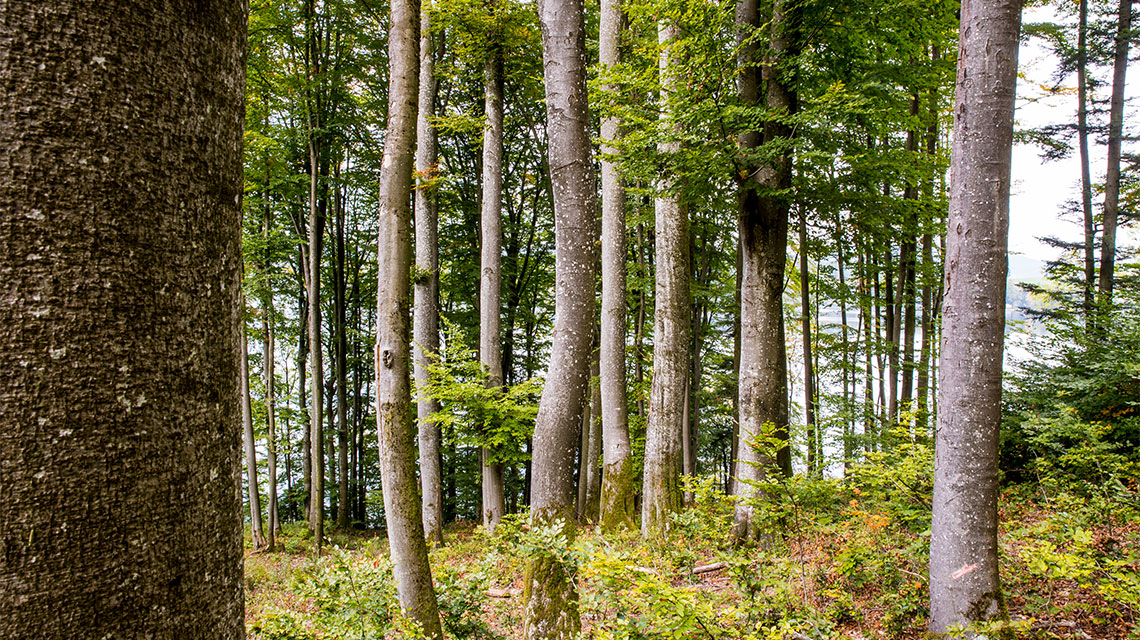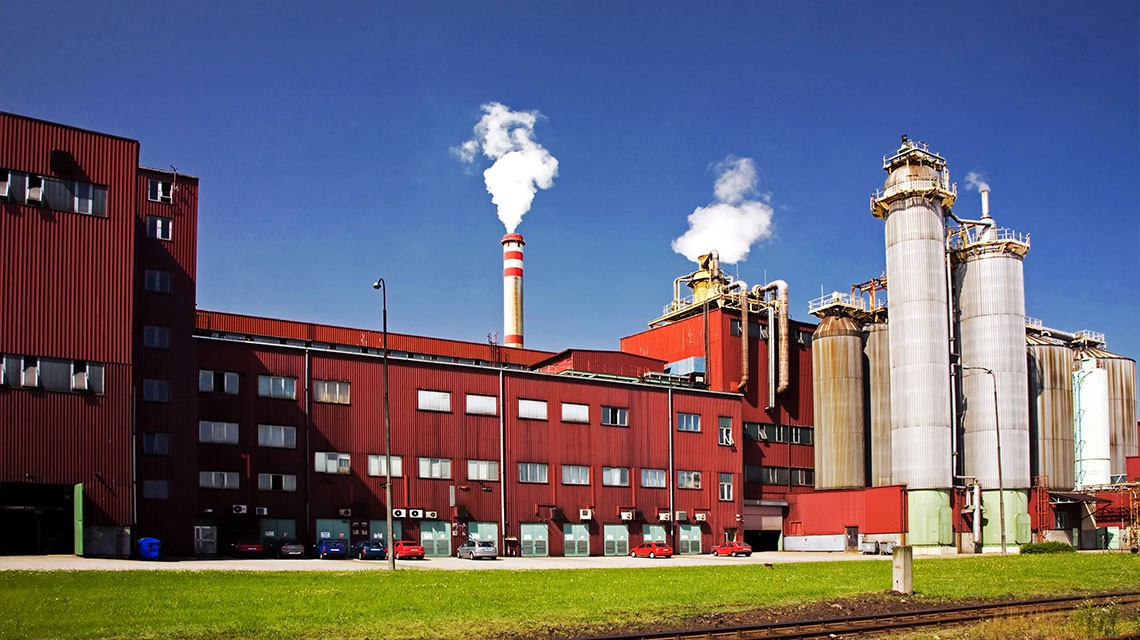Climate pioneers by choice,
not by accident
We choose sustainability at every opportunity, improving transparency and infrastructure, sourcing and producing green energy, and aligning with science‑based targets.
Our vision is to achieve net-zero by 2050
Setting the benchmark with science-based targets
Taking action and making measurable progress towards our 2050 target of net‑zero emissions (Scope 1, 2 and 3)
Science Based Target initiative
Lenzing is one of more than 2,000 companies worldwide committed to taking science-based climate action in line with the 2015 Paris Agreement – which aims to limit global warming to 1.5°C compared to pre-industrial levels. In 2019, Lenzing became the first wood-based cellulosic fiber producer with an approved science-based target to reduce emissions (Scope 1, 2 and 3) by 50 percent per ton of product sold by 2030 – using 2017 as a baseline.
We also aim to achieve net-zero carbon emissions (Scope 1, 2 and 3) by 2050 through reduction of emissions rather than offsetting.
These targets align with the United Nations Sustainable Development Goal 13 to take urgent action to combat climate change and its impact. We’ve made considerable progress towards this in 2022 with the expansion of green energy use at our sites in Indonesia and China, plus continued investment in the ramp up of our Thailand and Brazil sites, which both use renewable energy.
AAA
Status
Awarded by CDP for environmental leadership in climate change, water security and forests.
Championing circularity
Receiving high praise for leadership in sustainable forest management, water security, social responsibility and tackling climate change
Global sustainability ratings
Three global sustainability bodies recognized our ongoing commitment to the reduction of our environmental footprint in 2022, as well as our continuing efforts to meet the United Nations Sustainable Development Goals.
In December, non-profit organization CDP gave us a triple ‘A’ rating, making Lenzing one of only 12 companies out of 15,000 worldwide recognized as outstanding for environmental leadership in three categories (climate change, water security and forests). The same month, MSCI confirmed our maintained ‘AA’ rating based on Lenzing’s high performance when benchmarked against the industry average.
We also received Platinum status from EcoVadis, placing us in the top one percent of companies in our industry evaluated worldwide. The comprehensive assessment recognized our efforts in four key practices of corporate social responsibility, the environment, fair working conditions and human rights, ethics and sustainable procurement.
Awards for wood and pulp sourcing
We took first place in Canopy’s Hot Button ranking. The Canadian non-government organization evaluates global producers of cellulosic fibers in terms of responsible wood, pulp sourcing, innovation and traceability. The Canopy ranking also measures use of alternative raw materials and achievements made towards the protection of ancient and endangered forests. Lenzing’s Hot Button ranking confirms our practices are grounded in sustainability.
Further to this, we took second place in the Transformational Climate Change Solutions category of the Financial Times 2022 Transformational Business Awards. Special commendation was given to our joint venture LD Celulose in Brazil. Praise was given for the pulp mill’s highly efficient carbon footprint and its contribution towards a more environmentally sustainable textile industry through the provision of pulp required to produce wood-based fibers.
Our contribution towards a cleaner textile industry was also acknowledged by the Austrian Society for Environment and Technology (ÖGUT) with an Environmental Award in the ‘World Without Waste’ category.
Awards for sustainable fibers
The first ever prototype of functional sportswear to be made using 100 percent TENCEL™ Luxe filament and lyocell fibers was named ISPO award winner 2022. The Sidonios Tech x TENCEL™ Luxe Seamless Athleisure Set was recognized by the international sports platform for its innovation in creating a seamless material without elastane. It was also praised for its pleasant feel, moisture regulation and high-quality processing.
Until now, functional seamless clothing has largely been made using petroleum-based fibers to achieve the required elasticity and shape retention. International recognition of the product coupled with its unprecedented nature affirms continuing demand for sustainable fibers despite market slowdown in 2022.
The International Textile Manufacturers Federation 2022 Award for Sustainability was given to TENCEL™ modal fibers with Indigo Color Technology. The innovative dyeing process reduces use of water and electricity by 99 percent and saves 80 percent of the chemicals used in traditional dyeing processes.
Furthermore, our VEOCEL™ brand received the 2021 Outstanding Contribution Award for Sustainability at the 2022 Sustainable Development in China Forum.
300
k
Tons per year
Reduction of carbon emissions through investment in sourcing and generation of green energy at Nanjing and Purwakarta.
Better energy, better choices
Improved infrastructure allows sourcing of renewable electricity and increases self-sufficiency through green energy generation
Green energy from pulp production
Our pulp mills in Austria, the Czech Republic and Brazil generate vast quantities of energy when extracting pulp from wood. While a percentage of the wood is used to make biorefinery products for the food, pharmaceuticals, cosmetics and chemical industries, the remaining portion – lignin and bark – is burned to produce the steam needed to drive turbine-powered generators.
Lenzing Biocel Paskov, our pulp mill in the Czech Republic, currently has a production capacity of 285,000 tons of pulp per year. Energy derived from the process keeps the mill running. A portion is also fed into the public grid – due to current high demand for biomass energy, this has allowed the Paskov mill to remain competitive despite soaring energy prices.
Increased use of renewable energy and electricity
The March 2022 opening of our lyocell plant in Prachinburi, Thailand, marked an important milestone on the journey to achieving Lenzing’s net-zero carbon emissions by 2050. The site is powered 100 percent by sustainable biomass energy and is the largest of its kind to produce lyocell fibers, including carbon-zero branded TENCEL™ Lyocell fibers. Further to this, we commenced work in September to transition our site in Nanjing, China, to renewable electricity. Beginning 2023, the site uses almost 100 percent green electricity, reducing carbon emissions by 100,000 tons annually.
Lenzing’s viscose production in Purwakarta, Indonesia, currently relies on two sources of power. The first comes from the national grid, which was secured as renewable electricity in July. The secondary source is generated on site using fossil fuels like coal and we continue to explore ways to reduce this in line with science-based targets.
We passed another strategic milestone in October 2022 with the completion of Upper Austria’s largest ground-mounted photovoltaic (PV) plant at our Lenzing site – a success achieved in collaboration with Austrian energy provider VERBUND. The plant converts radiation from the sun into electricity and is one of the most cost-effective ways to procure green energy. In addition to this, Lenzing has signed an electricity supply contract with green power producer Enery and Energie Steiermark to construct a further PV plant in Styria, Austria. Electricity generated will supply the Lenzing site from the end of 2023.
3
bn
Additional trees
To be planted in Europe by 2030, as outlined in the EU Biodiversity Strategy.
Sustainable wood sourcing
Investing in responsible forestry, sustainable plantation management and quality pulp production enhances raw material security, while reforestation projects continue to protect biodiversity.
Sustainable plantation management in Brazil
Our pulp mill in Brazil is Lenzing’s largest ever investment in the provision of dissolving wood pulp for wood-based fiber production. This has led to further investment in sustainable forest plantations that will supply the raw material needed. Looking ahead to 2023, long-term stable production will require 70,000 hectares of sustainable forest to be planted. We had made good progress by the end of 2022, reaching 57,000 hectares, with an anticipated six more years needed to reach our target. This will enable progress towards our climate targets by allowing Lenzing to minimize the environmental impact of procuring raw materials.
Reforestation in Albania
Lenzing supports forest conservation and restoration in regions outside of our supply chain, including Albania where our work has so far enabled almost 20,000 trees to be planted across an area spanning 12 hectares. Launched in 2020, Lenzing’s afforestation project aims to plant up to 20 hectares. We continued to cooperate with the Shkodra Forestry School in 2022, training 150 local forestry workers in forest management, fire prevention and safety. The project sets an example that can be replicated across the region.
Transparency
Sharing knowledge and new technologies for improved transparency enable customers to make better choices
Digital solutions for a sustainable supply chain
We continue to improve transparency and traceability across the textile industry through our commitment to drive digital solutions for the supply chain. Enhancements to Lenzing’s E-Branding Services made in 2022 include new online tools to support customers using TENCEL™, LENZING™ ECOVERO™ and VEOCEL™ fibers. The platform enables them to quickly verify fibers, apply for product licensing and take courses in E-Branding. A help desk is also available. The improved platform enhances the user experience and allows value chain partners to raise the bar for sustainability while combating counterfeiting.
We also partnered with Red Points in July to further tackle counterfeiting. The digital platform uses artificial intelligence to track unauthorized use of Lenzing trademarks. Our partnership with Red Points and our enhanced E-Branding Services both support Lenzing’s strategic aims to drive systemic change, advance circularity and green the value chain.


